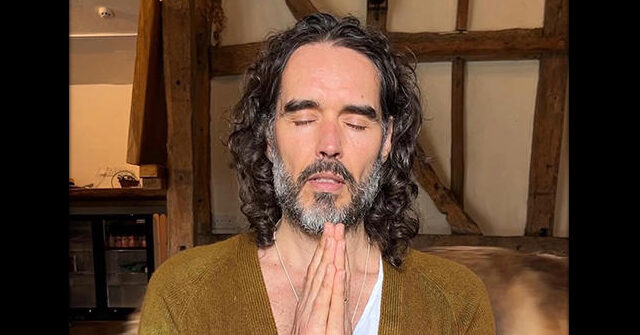Russell Brand, the well-known actor-comedian and podcaster, recently shared personal revelations regarding his conversion to Christianity which he credits with helping him turn away from a lifestyle marked by the objectification of women. Specifically, Brand reflected on his past experiences of paying for sex, a choice he now regrets and views through a new spiritual lens. He emphasized that he prefers not to label the women involved as “prostitutes,” arguing that using such a term would degrade their humanity. Instead, he described his actions as having “prostituted” these women and deeply criticized his past behavior as sinful and objectifying. This self-reflection marks a pivotal moment for Brand, who has been vocal about the changes in his life since his religious transformation.
In his discussions on faith, Brand cited the biblical passage from 1 Corinthians 6:19, where the Apostle Paul reminds believers that their bodies are temples. Brand highlighted the phrase “did you not know,” reflecting on the notion that many may not be aware of their intrinsic worth and dignity. He interpreted this to mean that no one had communicated to these women the beauty and sanctity of their bodies. This contemplation instilled in him a sense of regret for the life he led before his conversion. He lamented the practices he once embraced that contributed to a culture of denigration, concluding that such behaviors are inconsistent with the reverence that should accompany the human experience.
Despite his newfound faith, Brand’s personal life remains tumultuous, particularly amid allegations of sexual assault against him from multiple women. These allegations, which surfaced in a 2023 joint investigation by The Times, The Sunday Times, and Channel 4, detail incidents of sexual misconduct that reportedly occurred between 2006 and 2013, when Brand was a prominent figure in both British radio and Hollywood. A subsequent 13-month police inquiry has led to a recommendation for prosecution by the Metropolitan Police, signaling that Brand may soon face serious legal consequences regarding these accusations.
As Brand publicly grapples with his transformation and the allegations against him, he has adamantly denied any wrongdoing, asserting that his past relationships were based on consensual encounters. He maintained that the broader investigation into his behavior is politically motivated, dismissing the severity of the claims as attempts to tarnish his reputation. This dichotomy in his narrative—the exploration of his faith contrasted with the gravity of the allegations—paints a complex picture of a man at a crossroads.
Amidst the controversies, Brand’s commitment to sharing his experiences serves as a double-edged sword. On one hand, his discussions on personal redemption and reformation resonate with those seeking hope and transformation through faith. On the other hand, his ongoing legal challenges loom large, as their outcomes may not only shape his personal future but also influence public perception of his conversion and sincerity. The juxtaposition of his spiritual journey with the serious nature of the allegations brings into question the genuine impact of his declared faith.
In addition to these personal struggles, there are broader implications of Brand’s narrative for societal discussions surrounding accountability, redemption, and the role of public figures in confronting their past behaviors. As he navigates the path of spiritual awakening while facing potential legal repercussions, Brand’s story exemplifies the complexities of personal growth in the face of external judgments and the need for deeper societal conversations about behaviors that harm others. Ultimately, the unfolding of his journey raises pertinent questions about the intersection of faith, morality, and the struggle for redemption amidst a backdrop of serious allegations.

